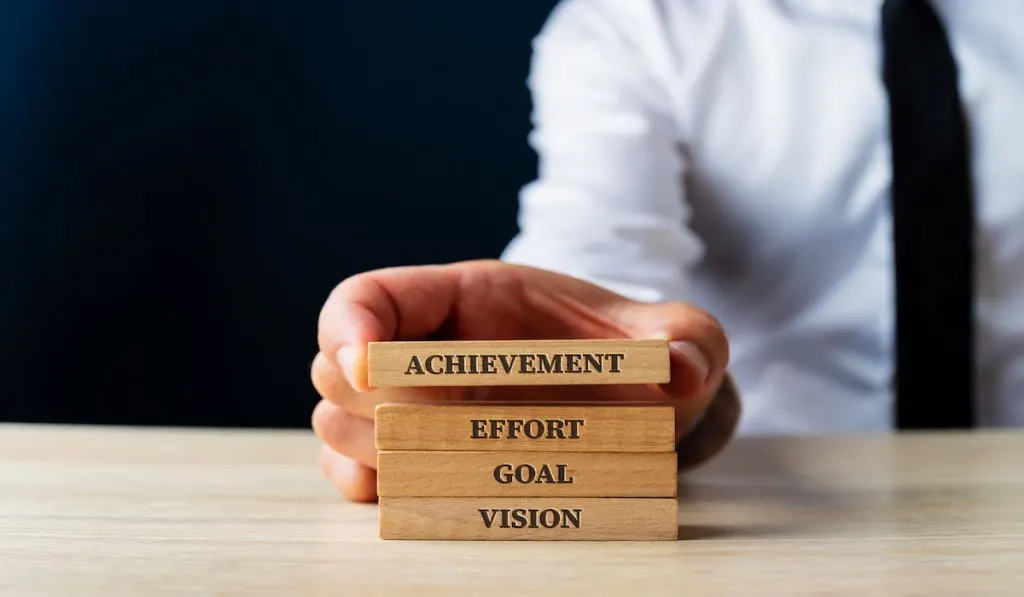A big part of success is knowing who you are. You probably know a lot of people who struggle with finding purpose or their calling in life.
People everywhere are constantly asking themselves and others, “What’s the point?”, “How can I find meaning?”, and “What is my calling?”
Of course, you’ve got experts of all types telling you what THEY think the purpose of life is and how you can find meaning. But what do they know? Not a whole lot, unless they get to know who you are and what motivates you.
I’m not discounting good advice like setting goals and working towards them, holding yourself accountable, and taking the time to learn new skills. All of that works. Very well in fact.
There are tips and scheduling techniques you can use to boost performance and get better results at whatever you’re doing. Everyone from a professional athlete to a school teacher can use these strategies.
When it comes to finding real purpose in life and achieving significant achievements, you have to understand who you are as a person, what defines you, and how you define success.

Not everyone wants to be a millionaire. Most people, though, are driven by something deeper.
Understanding personal core values and defining what yours are will help you build the foundation for the success you’re looking for. You’ll understand the “why”, which will make the “how” so much easier.
Here’s some helpful information to guide you through exploring personal core values and how knowing what your values are will point you in the right direction.
Guideline 1 – Money Matters, But Not Why You Think
Almost everyone wants to achieve some level of wealth in life. People want to feel comfortable, buy something nice once in a while, enjoy a nice meal out, etc.
There’s something to be said for not worrying about bills. It’s hard to focus on fulfillment when you’re stressed out about making rent.
The problem with money is when people confuse monetary success with a personal core value. They come to value the money itself, not what gets them there. In the end, most people who are overly focused on money wind up feeling empty.
So let’s put that aside and move on. Money is important, but it’s not what we’re talking about here.
Guideline 2 – Personal Core Values Are Like a Life Mission Statement
Who do you want to be? What type of person are you? These types of questions will help you get to the bottom of what your personal core values are.
Exploring your personal core values can be a lengthy process, but it’s worth the time spent. Establishing personal core values can communicate something you already value, or they can capture something you aspire to.
For example, one of your core values can be integrity if you put special emphasis on honor and honesty. You can also aspire to be a better communicator. Personal core values can be about growth too.
When you think about core values, you should consider them to be your life’s mission statement.
It’s a standard that you can hold yourself to and measure many of life’s decisions against, whether it’s taking a new job, involving yourself with friends and romantic partners, and other choices with significant implications.
Guideline 3 – Your Core Values Will Resonate with You
It’s easy to get caught up in what’s on social media or what everyone projects the image of success to be on LinkedIn.
We see private jets and fancy cars, people in suits on their way to important meetings, or so-called wealthy people relaxing on a beach somewhere. It’s understandable why some people feel like their life isn’t enough because they are always told they want more.
If you’re having a hard time focusing away from material success and defining what your true personal core values are, here’s a way to know what they are with certainty.
As you review your values, there will be some that simply resonate with you. It’s hard to capture in words what that feels like. All we can say is you’ll know when it happens.
Defining your personal core values is often about peeling back all the noise and simply being honest with yourself about what’s important.
Listen for those quiet but strong convictions and stick to them.
Guideline 4 – Personal Core Values Can Change, and That’s OK
It doesn’t happen a lot, but personal core values can change. Let’s examine some examples.
Let’s say you’re an ambitious university grad with aspirations of climbing a corporate ladder or starting your own business.
You list out your personal core values and hold yourself accountable to them regularly. You see success start to materialize. Then you have kids.

Having a family is a major milestone in many peoples’ lives. It can change your priorities and even who you are as a person.
Another example of personal core value changes can happen when you feel like you’ve accomplished everything you set out to accomplish.
Now, this doesn’t always have to be a monumental shift in your values. After all, as you achieve large goals and move on to new things, you can still have the same mission statement that you carry with you into your new endeavors.
However, sometimes meeting your goals is a good opportunity for you to take on new challenges and redefine what values you hold most dear.
For instance, if you’re a professional who values competence, expertise, professionalism, the pursuit of excellence, and other similar values, that will take you a long way. If you’ve achieved riches, though, you may eventually want to shift into something more philanthropic.
While you still want to make an impact and your values will take you a long way there, you could also add new personal core values to make charitable giving more impactful.
Guideline 5 – Personal Core Values Will Change You – But It Takes Time
A lot of coaches tell their clients that big changes happen in small increments, one day at a time. It’s easy to set massive, ambitious goals that are far off. The real meat and potatoes of change happen in small moments in what can be a very normal life.
Who you are is built up of the tiniest decisions that make the big choices easy to make. It’s the same with personal core values.
You have to have the patience necessary to make meaningful progress. Don’t get stressed out by the grind and don’t push off change far into the future. It’s got to happen now.

One way to keep your personal core values top of mind is to write them down. Whether it’s in a notebook or on your bathroom mirror, place them somewhere prominent where you’ll see them. Run over them in your head every week and make them one into a mantra.
You’ll find that your values will become a guiding light in your life. Run through your values before you make small decisions, and you’ll see how they shape your life and get you ready for the big ones.
Guideline 6 – Writing a Code of Conduct Puts Your Personal Core Values into Action
A code of conduct is a great exercise for people trying to define their personal core values. You think about what type of person you want to be and how you want to act. You can be very specific about how you want to handle situations like conflict, love, friendship, and hardship.
With a code of conduct, you’re doing a mental exercise where you’re conditioning your psyche to act a certain way. It will help you avoid regret and see meaningful progress toward your goals.
